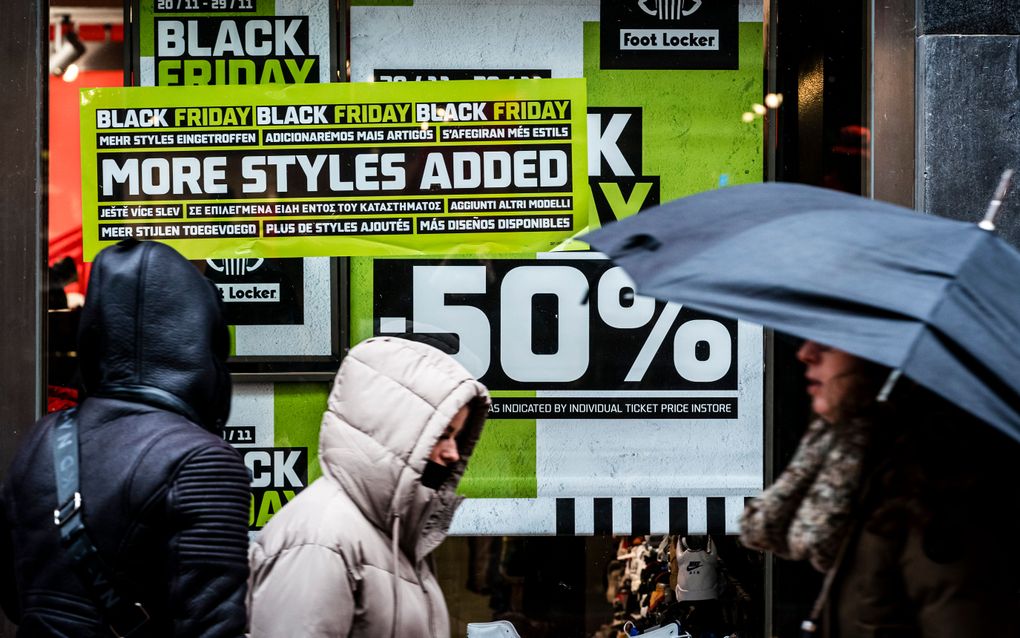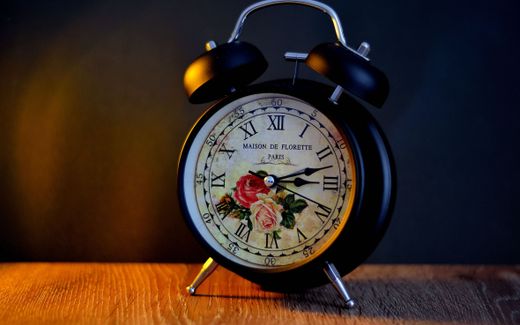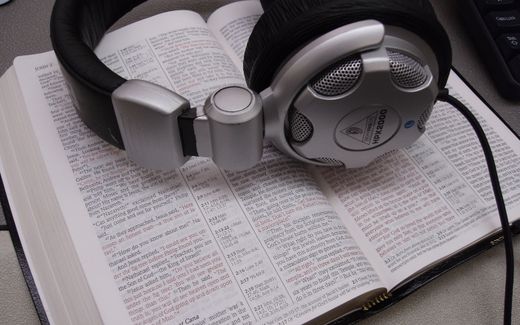Ethical questions around Black Friday remain

Photo ANP, Rob Engelaar
European Union
The American bargain fest Black Friday has firmly established itself in Europe. Following the large shopping chains, independent retailers are fully involved, including Reformed entrepreneurs in the Netherlands. But ethical questions around this day keep coming back.
“Black Friday Deals!” On Wednesday, full-page advertisements showed up in Dutch Reformed daily Reformatorisch Dagblad. Specialist in musical instruments Joh.deHeer is one of those advertisers. On Friday, Saturday and Monday, it offers discounts of roughly 20 to 30 per cent.
Co-owner Wim Alblas says he hesitated for a long time to join the bargain fest. “The word ‘black’ made me think of Halloween, but that has nothing to do with it. Last year, we participated for the first time. Our weekly turnover doubled, and we also attracted new customers. I did not expect it to have such an impact”, he said to the Reformatorisch Dagblad.
Black Friday is the day after American Thanksgiving Day on the fourth Thursday in November. Americans have free time and do massive shopping for the holiday month of December. Stores give substantial, sometimes extreme, discounts.
The fact that the day is called ‘black’ was initially for a negative reason. In American cities, the influx of buyers led to traffic chaos. Later, ‘black’ took on a positive meaning because shopkeepers significantly boosted their turnover. Common accounting practices used red ink to show negative financial records and black ink to show positive records. Black Friday, under this theory, is the beginning of the period when retailers would no longer be “in the red”.
Nowadays, Black Friday is often attached to Saturday. Sometimes the discounts continue until the Monday after: Cyber Monday. Some stores opt for an entire Black Friday week.
American
The Reformed bookshop Den Hertog in Houten is offering a discount this week on second-hand and foreign books. It is the first time that Den Hertog has had such an action week. Den Hertog avoids the name Black Friday in announcements. Manager Lourens Buijs: “Bargain hunting is really American. It stimulates desire. It seems that people only buy things because they are very cheap.” Den Hertog keeps the discounts relatively modest, between 10 and 20 per cent. “We are a bit ambivalent about it. It is, of course, great for the company that customers come to visit us.”

Owner Daan-Pieter van den Dikkenberg of leg fashion online store D&M Fashion in Zwijndrecht has been participating in Black Friday for about six years. “I am a trader; I want to take advantage of opportunities. In principle, I don’t think there’s anything wrong with it. I see no difference with other actions or with the flyers that fall in your mailbox; they also arouse desire. And people decide for themselves whether or not to buy something.”
Emissions
There are also people who oppose Black Friday. Dutch opinion magazine De Nieuwe Koers (The New Course) calls Black Friday a black day for workers in low-wage countries. “In sewing workshops and factories, people work in appalling conditions to make the Black Friday madness possible.”
In Norway, Gaute Norbye, parish priest in Kvaløy, thinks along the same lines. “When we participate in a race that increases differences, financially and environmentally, we as a church can do nothing but say that “this will be too much!””, Norbye says in Norwegian daily Vårt land.
The Norwegian trade organization Virke predicts that Norwegians will spend over 3.3 billion Kroner, 323 million euros.
“Black Friday is a concept where the trade stand pushes an insane over-consumption, solely to increase its own profits”, says Anja Bakken Riise. She is the leader of Framtiden i våre hender (The Future in Our Hands), an idealistic organization in Norway that advocates green consumption and resource justice. “The consequences of such big sales days are that we buy more than we need, which in turn leads to us both throwing away more and producing more things. It increases global emissions in a time where we all, including the trade stand, must help reduce global emissions.”
Related Articles






